Secretary of State for Business, Innovation and Skills
| United Kingdom Secretary of State for Business, Innovation and Skills President of the Board of Trade | |
|---|---|
|
Arms of Her Majesty's Government | |
|
| |
|
Department for Business, Innovation and Skills Board of Trade | |
| Style | The Right Honourable |
| Appointer | Elizabeth II |
| Inaugural holder |
The Earl of Shaftesbury (First Lord of Trade) The Lord Mandelson (Secretary of State for Business, Innovation, and Skills) |
| Formation |
16 September 1672 (First Lord of Trade) 5 June 2009 (Secretary of State for Business, Innovation, and Skills) |
| Website | Business, Innovation and Skills |
.svg.png) |
| This article is part of a series on the politics and government of the United Kingdom |
|
|
|
United Kingdom portal Politics portal |
Her Majesty's Principal Secretary of State for Business, Innovation and Skills, commonly known as the Business Secretary, is a cabinet position in the United Kingdom government. The office is responsible for the Department for Business, Innovation and Skills (formerly the Department for Business, Enterprise and Regulatory Reform and previous to that the Department of Trade and Industry). The secretary of state is also President of the Board of Trade.
History
The idea of a Board of Trade was first translated into action by Oliver Cromwell in 1655 when he appointed his son Richard Cromwell to head a body of Lords of the Privy Council, judges and merchants to consider measures to promote trade. Charles II established a Council of Trade on 7 November 1660 followed by a Council of Foreign Plantations on 1 December that year. The two were united on 16 September 1672 as the Board of Trade and Plantations.
After the Board was re-established in 1696, there were 15 (and later 16) members of the Board - the 7 (later 8) Great Officers of State, and 8 unofficial members, who did the majority of the work. The senior unofficial member of the board was the President of the Board, commonly known as the First Lord of Trade. The board was abolished on 11 July 1782, but a Committee of the Privy Council was established on 5 March 1784 for the same purposes. On 23 August 1786 a new Committee was set up, more strongly focused on commercial functions than the previous boards of trade. At first the President of the Board of Trade only occasionally sat in the Cabinet, but from the early 19th century it was usually a cabinet-level position.
During the government of Sir Alec Douglas-Home, the then President of the Board of Trade Edward Heath was given in addition the job of Secretary of State for Industry, Trade and Regional Development. This title was not continued under Harold Wilson, but when Heath became Prime Minister in 1970 he decided to merge the Board of Trade and the Ministry of Technology to create the Department of Trade and Industry. The head of this department became known as Secretary of State for Trade and Industry and President of the Board of Trade.
When Harold Wilson re-entered office in March 1974, the office was split into the Department of Trade, the Department of Industry and the Department of Prices and Consumer Protection. The title President of the Board of Trade became the secondary title of the Secretary of State for Trade. In 1979 the Department of Prices and Consumer Protection was abolished by the incoming Conservative government and its responsibilities were reintegrated into the Department of Trade. In 1983 the offices of trade and industry were remerged and the title of Secretary of State for Trade and Industry was recreated. When Michael Heseltine held this office, he preferred to be known by the older title of President of the Board of Trade, and this practice was also followed by Ian Lang and Margaret Beckett. Heseltine's decision to reuse the old title caused some comment and it was discovered that the Board of Trade had not in fact met since the mid-nineteenth century.
Under Gordon Brown's premiership there were two renamings of the role and three re-alignments of responsibility. In his first cabinet of 2007, he called the post Secretary of State for Business, Enterprise and Regulatory Reform. In this change, the Better Regulation Executive was added to the department but the Office of Science and Innovation was lost. In 2008, the title remained the same but responsibility for energy was lost. In 2009, the Department for Innovation, Universities and Skills was merged into the existing department and the post became Secretary of State for Business, Innovation and Skills.
First Lord of Trade (1672–1782)
| Name | Portrait | Took office | Left office | |
|---|---|---|---|---|
| The Earl of Shaftesbury |  |
16 September 1672 | 1676 | |
| The Earl of Bridgewater |  |
16 December 1695 | 9 June 1699 | |
| The Earl of Stamford |  |
9 June 1699 | 8 January 1702 | |
| The Viscount Weymouth |  |
8 January 1702 | 1705 | |
| The Earl of Stamford |  |
1705 | 12 June 1711 | |
| The Earl of Winchilsea |  |
12 June 1711 | 15 September 1713 | |
| The Lord Guilford | %2C_circle_of_Thomas_Murray_(1663-1734).jpg) |
15 September 1713 | September 1714 | |
| The Lord Berkeley of Stratton |  |
September 1714 | 12 May 1715 | |
| The Earl of Suffolk |  |
12 May 1715 | 31 January 1718 | |
| The Earl of Holderness |  |
31 January 1718 | 11 May 1719 | |
| The Earl of Westmorland |  |
11 May 1719 | May 1735 | |
| The Earl Fitzwalter |  |
May 1735 | June 1737 | |
| The Lord Monson |  |
June 1737 | 1 November 1748 | |
| The Earl of Halifax | 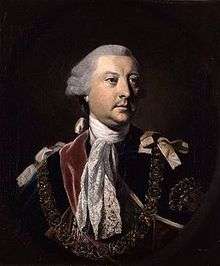 |
1 November 1748 | 21 March 1761 | |
| The Lord Sandys |  |
21 March 1761 | 1 March 1763 | |
| Hon. Charles Townshend | 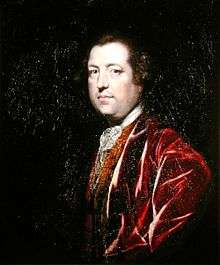 |
1 March 1763 | 20 April 1763 | |
| The Earl of Shelburne |  |
20 April 1763 | 9 September 1763 | |
| The Earl of Hillsborough | 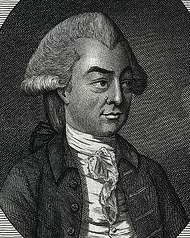 |
9 September 1763 | 20 July 1765 | |
| The Earl of Dartmouth |  |
20 July 1765 | 16 August 1766 | |
| The Earl of Hillsborough |  |
16 August 1766 | December 1766 | |
| The Viscount Clare |  |
19 January 1767 | 20 January 1768 | |
| The Earl of Hillsborough |  |
20 January 1768 | 31 August 1772 | |
| The Earl of Dartmouth |  |
31 August 1772 | 10 November 1775 | |
| Lord George Sackville-Germain | |
10 November 1775 | 6 November 1779 | |
| The Earl of Carlisle |  |
6 November 1779 | 9 December 1780 | |
| The Lord Grantham | |
9 December 1780 | 11 July 1782 | |
President of the Committee on Trade and Foreign Plantations (1784–1786)
| Name | Portrait | Took office | Left office | |
|---|---|---|---|---|
| The Lord Sydney |  |
5 March 1784 | 23 August 1786 | |
President of the Board of Trade (1786–1900)
| Name | Portrait | Took office | Left office1866 | |
|---|---|---|---|---|
| The Earl of Liverpool |  |
23 August 1786 | 7 June 1804 | |
| The Duke of Montrose |  |
7 June 1804 | 5 February 1806 | |
| The Lord Auckland |  |
5 February 1806 | 31 March 1807 | |
| The Earl Bathurst |  |
31 March 1807 | 29 September 1812 | |
| The Earl of Clancarty |  |
29 September 1812 | 24 January 1818 | |
| Hon. F. J. Robinson |  |
24 January 1818 | 21 February 1823 | |
| William Huskisson |  |
21 February 1823 | 4 September 1827 | |
| Charles Grant |  |
4 September 1827 | 11 June 1828 | |
| Hon. William Vesey-FitzGerald |  |
11 June 1828 | 2 February 1830 | |
| John Charles Herries |  |
2 February 1830 | 22 November 1830 | |
| The Lord Auckland |  |
22 November 1830 | 5 June 1834 | |
| Charles Poulett Thomson | 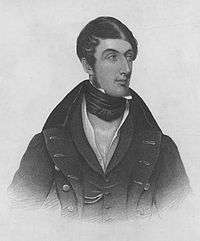 |
5 June 1834 | 14 November 1834 | |
| Alexander Baring | 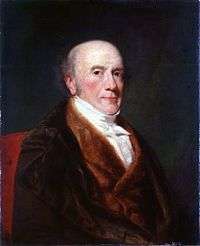 |
15 December 1834 | 8 April 1835 | |
| Charles Poulett Thomson |  |
8 April 1835 | 29 August 1839 | |
| Henry Labouchere |  |
29 August 1838 | 30 August 1841 | |
| The Earl of Ripon |  |
3 September 1841 | 15 May 1843 | |
| William Ewart Gladstone | 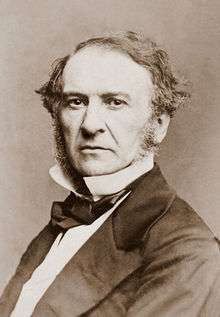 |
15 May 1843 | 5 February 1845 | |
| The Earl of Dalhousie |  |
5 February 1845 | 27 June 1846 | |
| The Earl of Clarendon |  |
6 July 1846 | 22 July 1847 | |
| Henry Labouchere |  |
22 July 1847 | 21 February 1852 | |
| J. W. Henley |  |
27 February 1852 | 17 December 1852 | |
| Edward Cardwell |  |
28 December 1852 | 31 March 1855 | |
| The Lord Stanley of Alderley | |
31 March 1855 | 21 February 1858 | |
| J. W. Henley |  |
26 February 1858 | 3 March 1859 | |
| The Earl of Donoughmore |  |
3 March 1859 | 11 June 1859 | |
| Thomas Milner Gibson | |
6 July 1859 | 26 June 1866 | |
| Sir Henry Bruce, Bt | 1866 | 1866 | ||
| Sir Stafford Northcote, Bt | 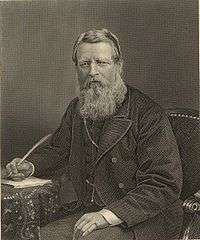 |
6 July 1866 | 8 March 1867 | |
| The Duke of Richmond |  |
8 March 1867 | 1 December 1868 | |
| John Bright | 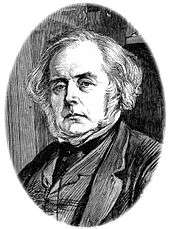 |
9 December 1868 | 14 January 1871 | |
| Chichester Parkinson-Fortescue |  |
14 January 1871 | 17 February 1874 | |
| Sir Charles Adderley |  |
21 February 1874 | 4 April 1878 | |
| Viscount Sandon | 4 April 1878 | 21 April 1880 | ||
| Joseph Chamberlain |  |
3 May 1880 | 9 June 1885 | |
| The Duke of Richmond |  |
24 June 1885 | 19 August 1885 | |
| Hon. Edward Stanhope |  |
19 August 1885 | 28 January 1886 | |
| A. J. Mundella | |
17 February 1886 | 20 July 1886 | |
| The Lord Stanley of Preston |  |
3 August 1886 | 21 February 1888 | |
| Sir Michael Hicks Beach, Bt | .jpg) |
21 February 1888 | 11 August 1892 | |
| A. J. Mundella | |
18 August 1892 | 28 May 1894 | |
| James Bryce |  |
28 May 1894 | 21 June 1895 | |
| Charles Ritchie |  |
29 June 1895 | 7 November 1900 | |
President of the Board of Trade (1900–1963)
| Name | Portrait | Took office | Left office | |
|---|---|---|---|---|
| Gerald Balfour |  |
7 November 1900 | 12 March 1905 | |
| The Marquess of Salisbury |  |
12 March 1905 | 4 December 1905 | |
| David Lloyd George |  |
10 December 1905 | 12 April 1908 | |
| Winston Churchill | 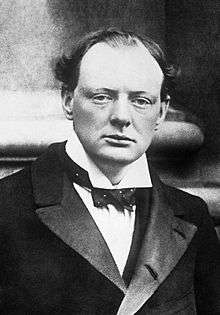 |
12 April 1908 | 14 February 1910 | |
| Sydney Buxton | 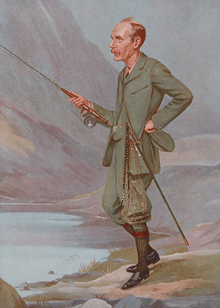 |
14 February 1910 | 11 February 1914 | |
| John Burns |  |
11 February 1914 | 5 August 1914 | |
| Walter Runciman |  |
5 August 1914 | 5 December 1916 | |
| Sir Albert Stanley |  |
10 December 1916 | 26 May 1919 | |
| Sir Auckland Geddes |  |
26 May 1919 | 19 March 1920 | |
| Sir Robert Horne |  |
19 March 1920 | 1 April 1921 | |
| Stanley Baldwin |  |
1 April 1921 | 19 October 1922 | |
| Sir Philip Lloyd-Greame |  |
24 October 1922 | 22 January 1924 | |
| Sidney Webb | 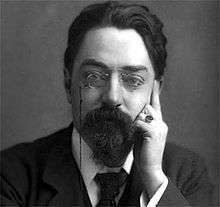 |
22 January 1924 | 3 November 1924 | |
| Sir Philip Cunliffe-Lister |  |
6 November 1924 | 4 June 1929 | |
| William Graham |  |
7 June 1929 | 24 August 1931 | |
| Sir Philip Cunliffe-Lister |  |
25 August 1931 | 5 November 1931 | |
| Walter Runciman | |
5 November 1931 | 28 May 1937 | |
| Oliver Stanley |  |
28 May 1937 | 5 January 1940 | |
| Sir Andrew Duncan |  |
5 January 1940 | 3 October 1940 | |
| Oliver Lyttelton |  |
3 October 1940 | 29 June 1941 | |
| Sir Andrew Duncan |  |
29 June 1941 | 4 February 1942 | |
| John Jestyn Llewellin |  |
4 February 1942 | 22 February 1942 | |
| Hugh Dalton |  |
22 February 1942 | 23 May 1945 | |
| Oliver Lyttelton |  |
25 May 1945 | 26 July 1945 | |
| Sir Stafford Cripps |  |
27 July 1945 | 29 September 1947 | |
| Harold Wilson |  |
29 September 1947 | 23 April 1951 | |
| Sir Hartley Shawcross |  |
24 April 1951 | 26 October 1951 | |
| Peter Thorneycroft |  |
30 October 1951 | 13 January 1957 | |
| Sir David Eccles |  |
13 January 1957 | 14 October 1959 | |
| Reginald Maudling | 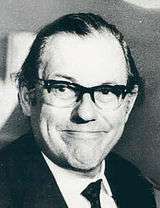 |
14 October 1959 | 9 October 1961 | |
| Frederick Erroll |  |
9 October 1961 | 20 October 1963 | |
Secretary of State for Industry, Trade and Regional Development
& President of the Board of Trade (1963–1964)
| Name | Portrait | Took office | Left office | Political party | Prime Minister | ||
|---|---|---|---|---|---|---|---|
| Edward Heath | |
20 October 1963 | 16 October 1964 | Conservative | Alec Douglas-Home | ||
President of the Board of Trade (1964–1970)
| Name | Portrait | Took office | Left office | Political party | Prime Minister | ||
|---|---|---|---|---|---|---|---|
| Douglas Jay | 18 October 1964 | 29 August 1967 | Labour | Harold Wilson | |||
| Anthony Crosland | 29 August 1967 | 6 October 1969 | |||||
| Roy Mason | 6 October 1969 | 19 June 1970 | |||||
| Michael Noble |  |
20 June 1970 | 15 October 1970 | Labour | Edward Heath | ||
Secretary of State for Trade and Industry
& President of the Board of Trade (1970–1974)
| Name | Portrait | Took office | Left office | Political party | Prime Minister | ||
|---|---|---|---|---|---|---|---|
| John Davies | 15 October 1970 | 5 November 1972 | Conservative | Edward Heath | |||
| Peter Walker | 5 November 1972 | 4 March 1974 | |||||
Secretary of State for Industry (1974–1983)
| Political party | Prime Minister | ||||||||||||||||
|---|---|---|---|---|---|---|---|---|---|---|---|---|---|---|---|---|---|
| Name | Portrait | Took office | Left office | Name | Portrait | Took office | Left office | Name | Portrait | Took office | Left office | ||||||
| Tony Benn | 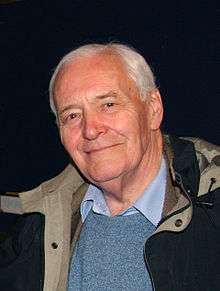 |
5 March 1974 | 10 June 1975 | Shirley Williams |  |
5 March 1974 | 10 September 1976 | Peter Shore | 5 March 1974 | 8 April 1976 | Labour | Harold Wilson | |||||
| Eric Varley | 10 June 1975 | 4 May 1979 | |||||||||||||||
| Edmund Dell | 8 April 1976 | 11 November 1978 | Labour | Jim Callaghan | |||||||||||||
| Roy Hattersley | 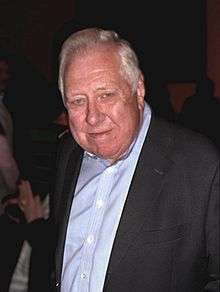 |
10 September 1976 | 4 May 1979 | ||||||||||||||
| John Smith | 11 November 1978 | 4 May 1979 | |||||||||||||||
| Keith Joseph | 4 May 1979 | 14 September 1981 | OFFICE ABOLISHED (responsibilities returned to the Trade Secretary) |
John Nott | 5 May 1979 | 5 January 1981 | Conservative | Margaret Thatcher | |||||||||
| John Biffen | 5 January 1981 | 6 April 1982 | |||||||||||||||
| Patrick Jenkin | 14 September 1981 | 12 June 1983 | |||||||||||||||
| The Lord Cockfield | 6 April 1982 | 12 June 1983 | |||||||||||||||
Secretary of State for Trade and Industry
& President of the Board of Trade (1983–2007)
| Name | Portrait | Took office | Left office | Political party | Prime Minister | ||
|---|---|---|---|---|---|---|---|
| Cecil Parkinson | 12 June 1983 | 11 October 1983 | Conservative | Margaret Thatcher | |||
| Norman Tebbit | |
16 October 1983 | 2 September 1985 | ||||
| Leon Brittan |  |
2 September 1985 | 22 January 1986 | ||||
| Paul Channon | 24 January 1986 | 13 June 1987 | |||||
| The Lord Young of Graffham | 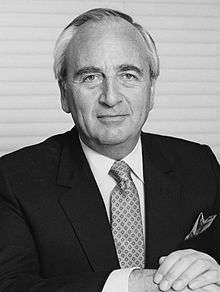 |
13 June 1987 | 24 July 1989 | ||||
| Nicholas Ridley | 24 July 1989 | 13 July 1990 | |||||
| Peter Lilley |  |
14 July 1990 | 10 April 1992 | ||||
| Conservative | John Major | ||||||
| Michael Heseltine† | _(10559130986).jpg) |
10 April 1992 | 5 July 1995 | ||||
| Ian Lang† | 5 July 1995 | 2 May 1997 | |||||
| Margaret Beckett† |  |
2 May 1997 | 27 July 1998 | Labour | Tony Blair | ||
| Peter Mandelson |  |
27 July 1998 | 23 December 1998 | ||||
| Stephen Byers | 23 December 1998 | 8 June 2001 | |||||
| Patricia Hewitt |  |
8 June 2001 | 6 May 2005 | ||||
| Alan Johnson†† |  |
6 May 2005 | 5 May 2006 | ||||
| Alistair Darling |  |
5 May 2006 | 27 June 2007 | ||||
† — Primarily referred to as President of the Board of Trade, and not as Secretary of State for Trade and Industry
†† — Alan Johnson was initially announced on 6 May 2005, after the general election, as being "Secretary of State for Productivity, Energy and Industry and President of the Board of Trade", but after just a week, on 13 May, it was declared that the new title would not be used, after widespread derision of the new name, because the abbreviation for Johnson's title, Productivity, Energy and Industry Secretary, would have been "PENIS"[1]
Secretary of State for Business, Enterprise and Regulatory Reform
& President of the Board of Trade (2007–2009)
| Name | Portrait | Took office | Left office | Political party | Prime Minister | ||
|---|---|---|---|---|---|---|---|
| John Hutton |  |
28 June 2007 | 3 October 2008 | Labour | Gordon Brown | ||
| The Lord Mandelson |  |
3 October 2008 | 5 June 2009 | ||||
Secretary of State for Business, Innovation and Skills
& President of the Board of Trade (since 2009)
| Name | Portrait | Took office | Left office | Political party | Prime Minister | ||
|---|---|---|---|---|---|---|---|
| The Lord Mandelson |  |
5 June 2009 | 11 May 2010 | Labour | Gordon Brown | ||
| Vince Cable |  |
12 May 2010 | 8 May 2015 | Liberal Democrats | David Cameron (Coalition) | ||
| Sajid Javid | .jpg) |
11 May 2015 | Incumbent | Conservative | David Cameron (Majority) | ||
References
- ↑ "Profile: Alan Johnson". The Telegraph. 18 June 2005.
| ||||||||||||||||||||||||||
